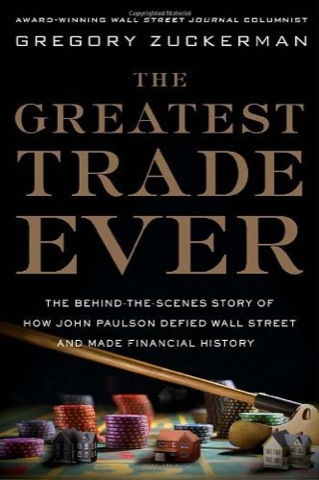Along with Michael Lewis’ The Big Short, Gregory Zuckerman’s The Greatest Trade Ever shows that at least some investors were aware that the housing bubble of the mid-2000s was likely to collapse, with severe repercussions on the economy. The book (whose alternate subtitle is “How One Man Bet Against the Markets and Made $20 Billion”) focuses on John Paulson, whose Paulson & Company was considered a minor player until he shorted so many mortgage bonds that he made the company $14 billion (plus $4 billion for himself).
Believers in the “efficient market hypothesis” argue that there will always be investors willing to bet on both sides of any market. The resulting prices, they say, represent the most accurate possible evaluations of the true value of any investment. One problem with this hypothesis, Zuckerman shows, is that some investments are asymmetrical, which leads to a bias in the markets.








